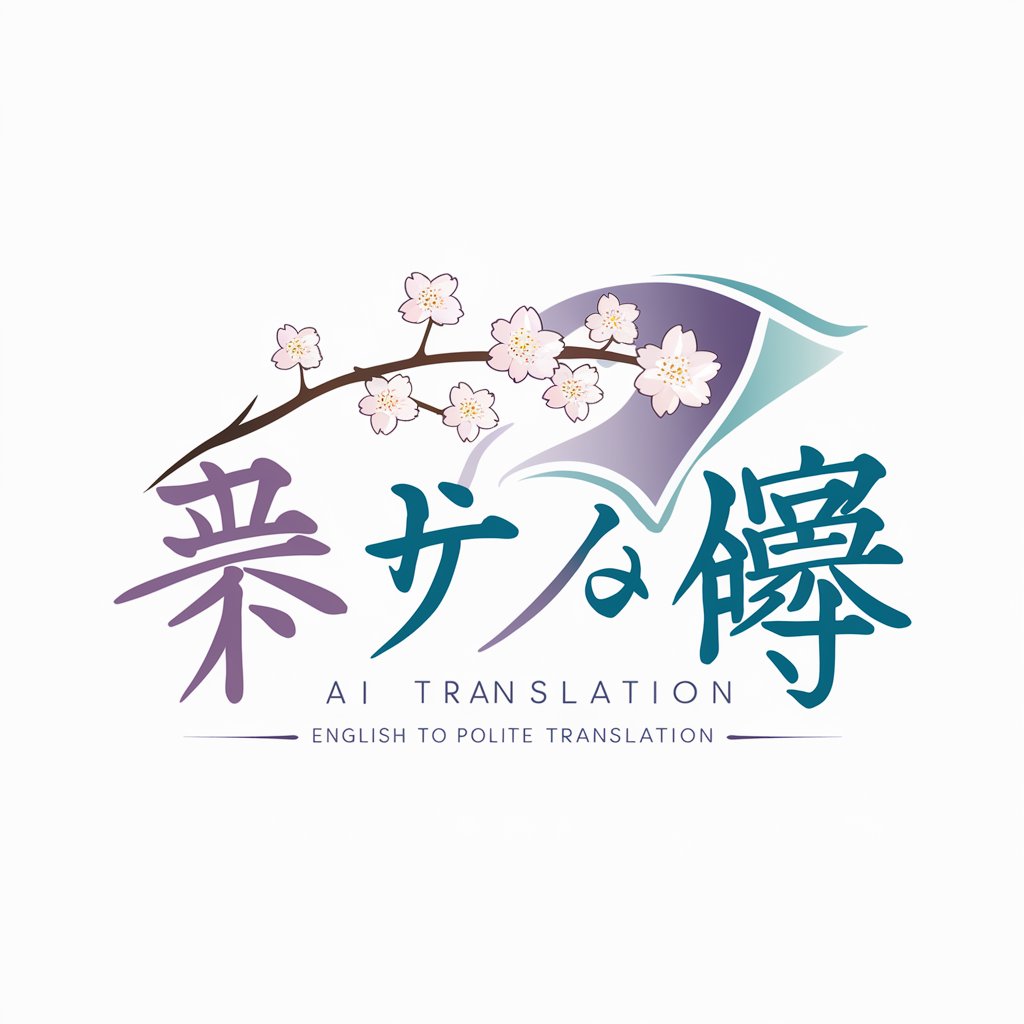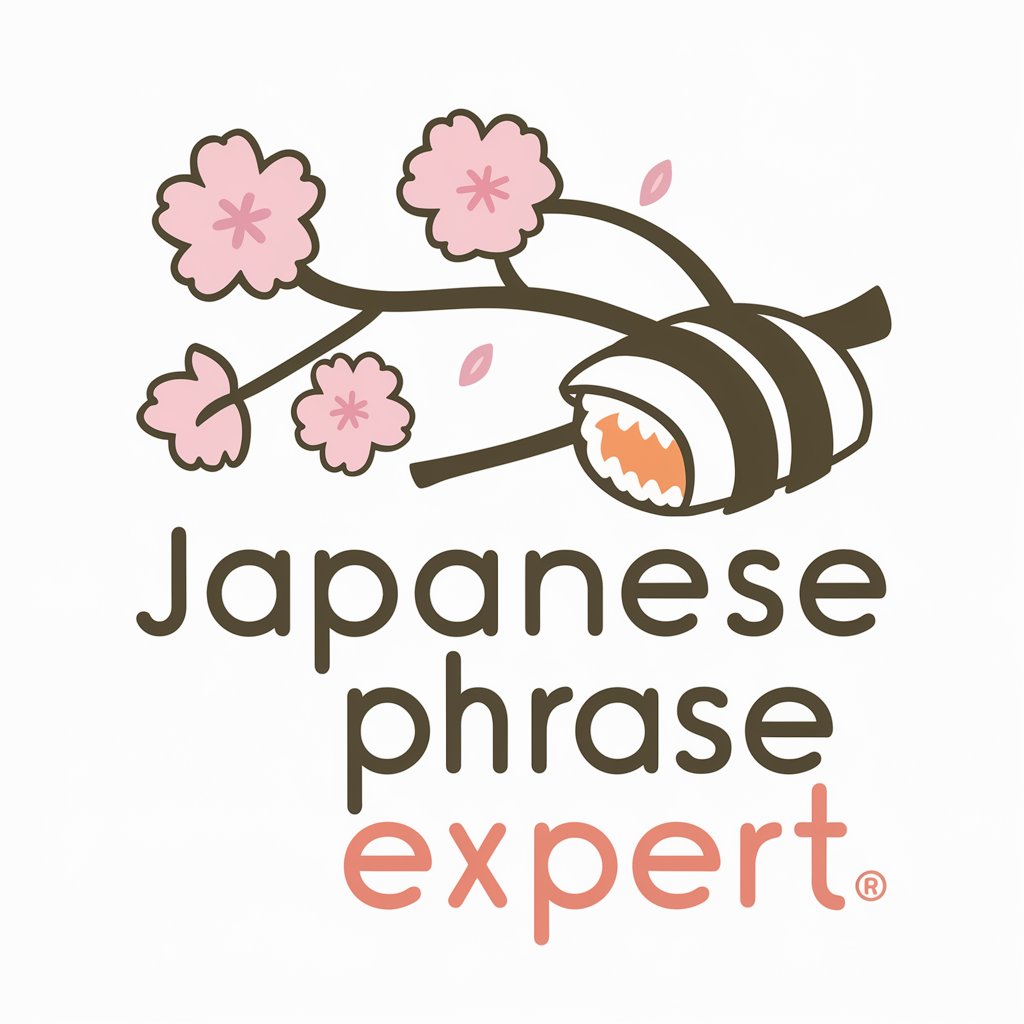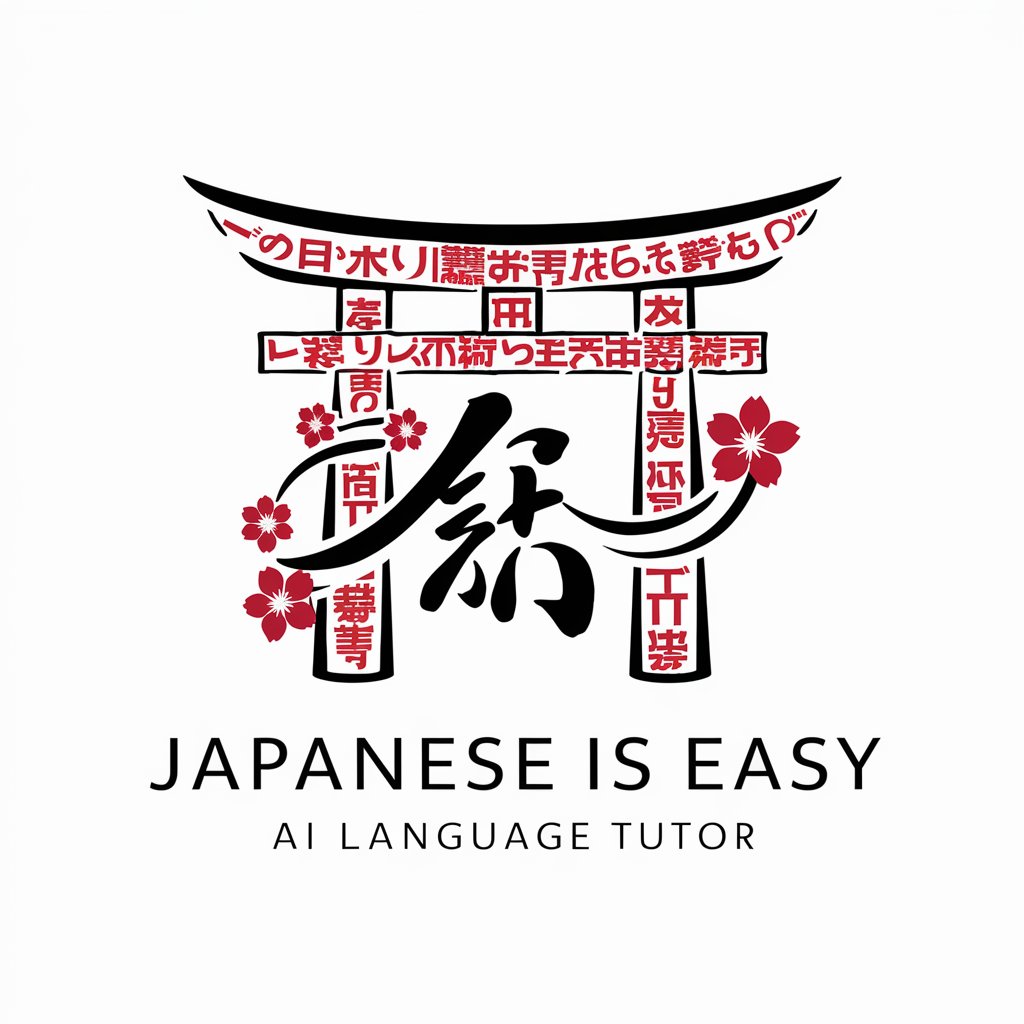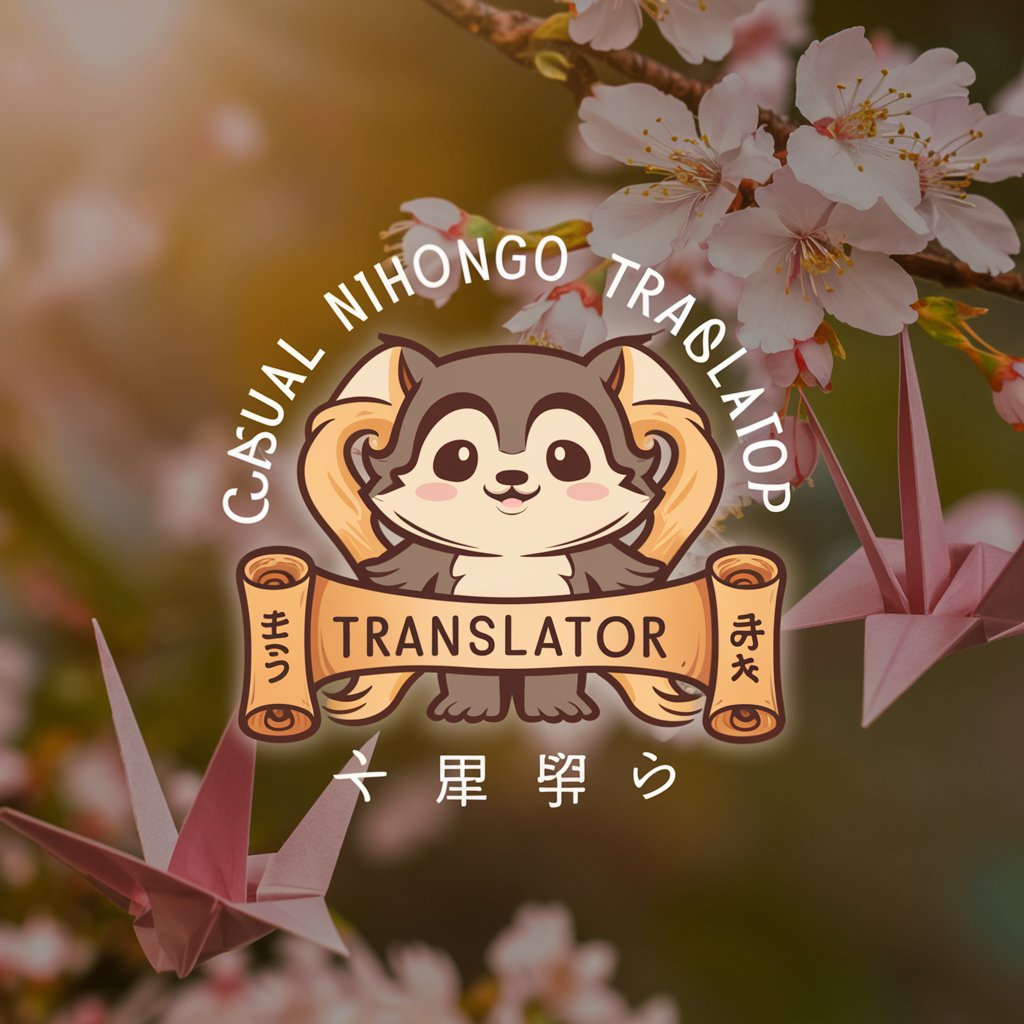
Japanese Expressions - Japanese Expressions Guide
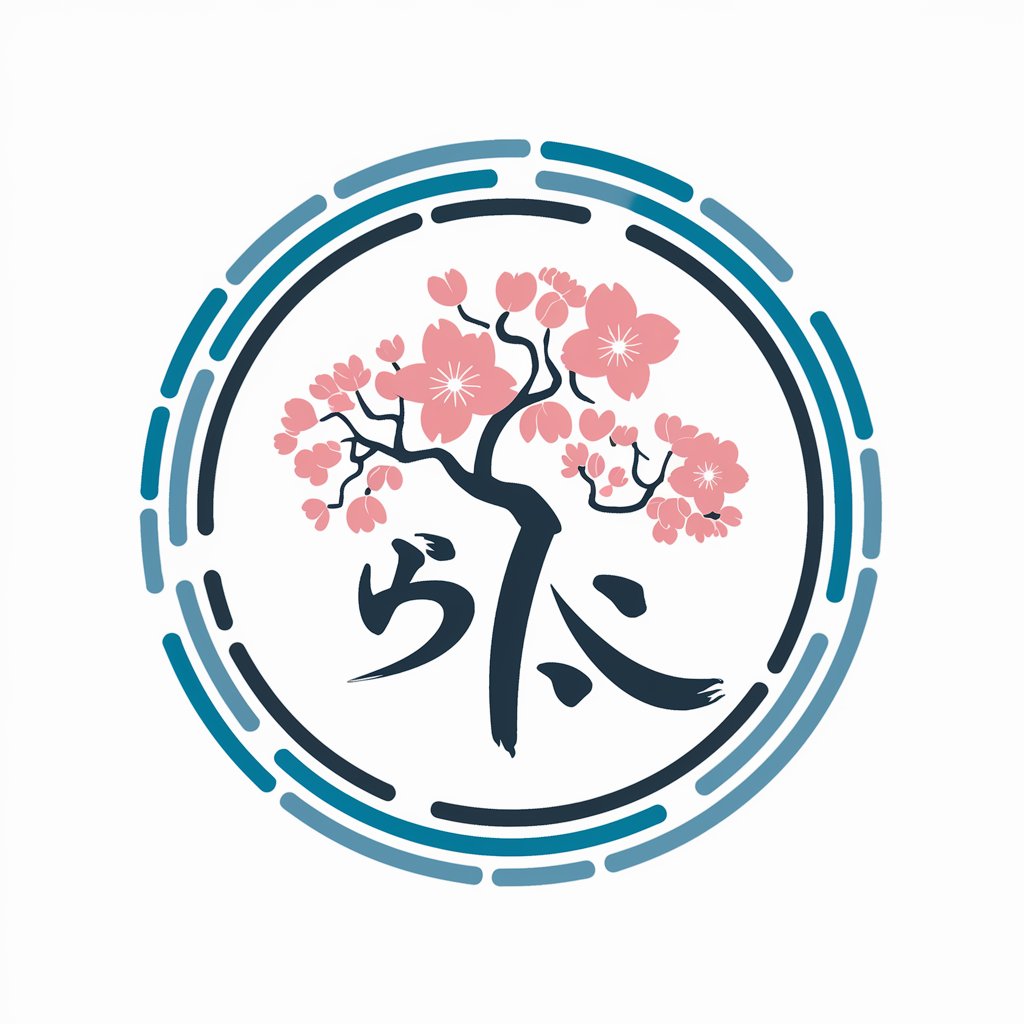
Welcome! Need help with Japanese expressions? Let's get started!
Master Japanese with AI-powered expressions
Provide a casual Japanese expression for saying 'thank you'.
What's a formal way to apologize in Japanese?
How do you say 'good morning' in a neutral tone in Japanese?
Give me a casual way to say 'see you later' in Japanese.
Get Embed Code
Introduction to Japanese Expressions
Japanese Expressions is designed to provide users with natural sounding expressions in Japanese across different levels of formality: casual, neutral, and formal. This service is built to assist in understanding, using, and correcting Japanese expressions, enhancing communication skills in Japanese. It's tailored to cater to a wide range of needs, from casual conversations between friends to formal business communications. For example, transforming the casual expression 'たべる?' (taberu?, "Want to eat?") into a more formal request '一緒にお食事しませんか?' (Issho ni o-shokuji shimasen ka?, "Would you like to dine together?") illustrates the adaptability and usefulness of this service. Powered by ChatGPT-4o。

Main Functions of Japanese Expressions
Translation and Contextualization
Example
Turning 'ありがとう' (arigatou) into 'Thank you very much for your help' in a formal context.
Scenario
This is particularly useful in situations where users need to express gratitude in a way that matches the social standing and the formality of the situation, ensuring appropriateness and cultural sensitivity.
Formality Adjustment
Example
Adjusting 'ごめん' (gomen, casual apology) to '申し訳ございません' (moushiwake gozaimasen, a formal apology).
Scenario
This function is vital for users who find themselves in varied social contexts, needing to switch between casual and formal tones seamlessly, such as in a professional setting or when apologizing formally.
Correction and Explanation
Example
Correcting the common mistake of using '大丈夫ですか?' (daijoubu desu ka?) to inquire about someone's wellbeing after an accident to 'けがはありませんか?' (kega wa arimasen ka?, "Are you injured?")
Scenario
This is crucial for learners and even intermediate speakers of Japanese to navigate complex situations accurately and to communicate more effectively by understanding nuances.
Ideal Users of Japanese Expressions
Japanese Language Learners
From beginners to advanced learners, users who wish to improve their conversational skills, understand nuances, and practice the appropriate use of expressions in varied social contexts would find this service invaluable.
Professionals and Businesspeople
Individuals engaged in business with Japanese companies or working in Japan who need to navigate formal and informal settings accurately, ensuring effective communication with colleagues and clients.
Tourists and Cultural Enthusiasts
Travelers and enthusiasts interested in Japanese culture who want to enhance their travel experience by communicating more naturally with locals, thereby gaining a deeper understanding and appreciation of the culture.

How to Use Japanese Expressions Effectively
Start your journey
Begin by accessing resources online for an immersive experience without the need for a subscription or premium access.
Identify your level
Assess your current proficiency in Japanese to tailor the learning experience to your specific needs, ranging from beginner to advanced.
Choose your context
Select the context or situation for which you need expressions, such as casual conversation, formal communication, or academic writing.
Practice regularly
Incorporate these expressions into your daily practice through speaking, writing, or language exchange to enhance retention and fluency.
Seek feedback
Engage with native speakers or educators to get constructive feedback on your usage of expressions to ensure accuracy and naturalness.
Try other advanced and practical GPTs
Logic Mentor
Empowering Logical Thinking with AI

Warren GPT
Investing wisdom at your fingertips.

Global Mail Guide
Streamlining Global Mail Forwarding with AI

Book Scout
Discover your next read with AI-powered guidance.

Sculpture Spark
Shape Your Imagination with AI

Fare Finder | Finding the best travel deals
AI-Powered Flight Deal Discovery

Expressions of American History
Visualize history with AI-powered creativity

AfterEffects Expressions - With Docs Reference
Automate animations with AI-powered expressions.

I, Programov
Transforming code into understanding with AI.

Skills Summarizer
Streamline your career journey with AI-powered insights.

Actonomy Skills Extractor
Unlock Potential with AI-Powered Skills Extraction

Skills developer Neurobooster
Adaptive Learning, Powered by AI

FAQs on Japanese Expressions
What are Japanese Expressions?
Japanese Expressions refer to phrases, idioms, and sentences used in various contexts to convey thoughts, emotions, or intentions in the Japanese language.
How can I improve my use of Japanese Expressions?
Improvement comes from regular practice, exposure to native content, and interaction with native speakers. Tools like language learning apps and cultural immersion can also be beneficial.
Are there different expressions for casual and formal situations?
Yes, Japanese language distinguishes sharply between casual and formal speech. Casual expressions are used with friends and family, while formal speech is reserved for respectful or professional contexts.
Can learning expressions help in understanding Japanese culture?
Absolutely, many expressions are deeply rooted in cultural practices, beliefs, and history. Understanding these can provide insights into Japanese culture and social norms.
What resources are recommended for learning Japanese Expressions?
Recommended resources include language learning apps, Japanese language courses, textbooks focused on communication, and immersive experiences like language exchange or travel to Japan.

